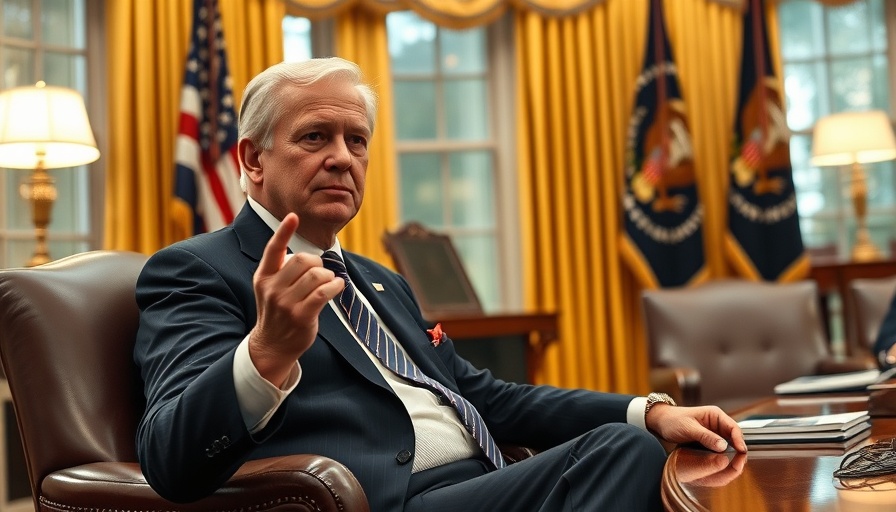
Trump's Near Deal with China Over TikTok: A Failed Negotiation?
In a recent statement, President Donald Trump revealed that he was on the brink of concluding a deal with China for the sale of TikTok, the wildly popular social media app. However, the negotiations took a severe downturn as Beijing allegedly reassessed its position following the imposition of tariffs that soared to a striking 54% on Chinese goods. This shift highlights the intricate interconnectedness of trade policy and technology investment during a turbulent period in US-China relations.
The Power of Tariffs in International Trade
Trump emphasized how tariffs have reshaped the dynamics of international relations, specifically mentioning China’s response to his tariff increases. He suggested that by slightly reducing tariffs, a TikTok deal could be expedited, indicating the leverage tariffs can provide in negotiations. In essence, tariffs are not just taxes; they are tactical tools in geopolitical posturing. This strategy aligns with Trump's administration's broader economic philosophy aimed at prioritizing American interests.
Implications of Tariff Strategies
The consequences of tariff negotiations extend beyond the immediate scope of social media. Several industries and stakeholders are affected by such unpredictable policies. The retaliation by China, which levied its own set of tariffs mirroring Trump's increase, illustrates a tit-for-tat approach that defines current US-China economic relations. How this plays out could shape trade strategies for years to come and influence the tech industry’s landscape on a global scale.
The Future of TikTok and US-China Relations
As the deadline for TikTok’s sale looms, many investors and industry watchers are left questioning the future of the app and its parent company, ByteDance. The prolonged stalemate, coupled with rising tensions and retaliatory measures, reflects the broader landscape of US-China business relations. Moving forward, it remains uncertain whether a compromise can be found that satisfies both the US’s national security concerns and China’s economic interests.
Trump's recent comments show a willingness to negotiate, but as evidenced by the current deadlock, the path forward is fraught with complexity. Keep an eye on potential shifts as the deadline approaches, and consider how ongoing tariff disputes might impact not only tech companies but global trade dynamics as a whole.
 Add Row
Add Row  Add
Add 




 Add Row
Add Row  Add
Add 

Write A Comment